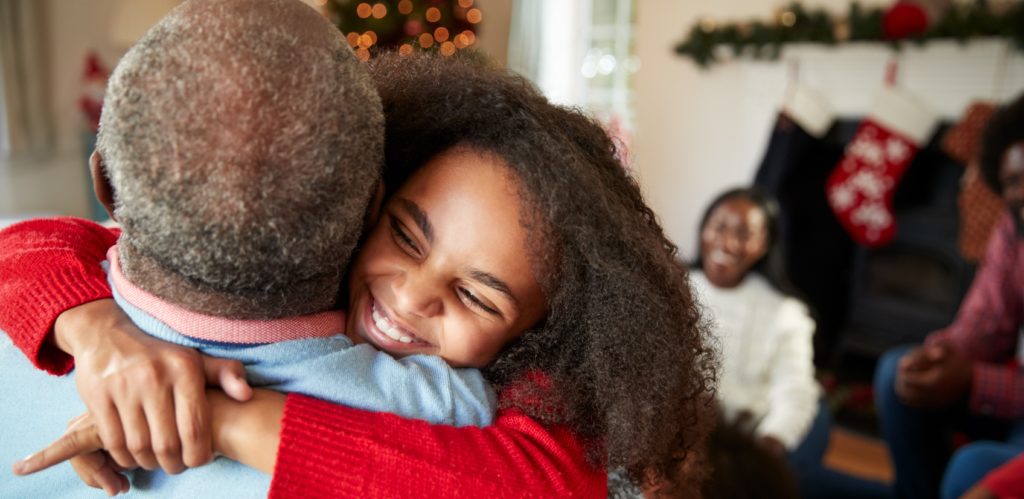
One thing we all share due to Covid is that we cannot share a hug with so many who mean so much to us.
We’re fortunate if a lack of hugs is the worst of our problems, given the suffering across the globe and the fact that Americans will get vaccinated long before much of the world does.
Still, it isn’t a sin to feel the loss of something as basic and vital as that human touch.
So when will H-Day arrive? That is, when will Covid vaccinations allow us to safely hug non-household friends and loved ones again?
This great New York Times article about our post-vaccine lives doesn’t quite provide the answer. So much hinges on when we’re each vaccinated, when most of America is, when most of any given region is, how many people refuse it and what we learn about the virus and its spread in the months ahead.
But the piece still illuminates a lot about precautions we might retain or drop after vaccination. For folks who can’t access it or can’t be bothered, here’s my distillation of key questions it addresses and key advice it dispenses. (All quotes are from the piece.)
Once we’re vaccinated, should we simply toss aside the mask and other precautions?
No.
Why not?
First, because even if the vaccination efficacy rate is 95 percent, the remaining five percent amounts to lots of vaccinated but unprotected people. As per the Times article:
“Five percent of a really high number is still a high number, and what you want is 5 percent of a relatively medium or low number,” said Dr. Ashish Jha, a physician and the dean of the School of Public Health at Brown…
“Immunity is not an on/off switch; it’s a dial,” [Eric Lofgren, an infectious disease epidemiologist at Washington State University] said. “If you’re below herd immunity, the virus is still happily circulating in the population and there’s always a chance the vaccine isn’t working for you.”
Second, we can’t throw caution to the wind because we don’t yet know whether we can’t spread Covid once we’ve been vaccinated. People not yet inoculated or who cannot be inoculated for health reasons might still catch it from you. “Early data on transmission [by vaccinated persons] seems promising, but vaccines are very unlikely to curb contagiousness entirely.”
So once everyone who wants it has been vaccinated, are we as safe as we’ll ever be?
Not necessarily.
Why not?
Because, among other things, it hinges on whether and to what extent we reach herd immunity: “the point when the virus can’t easily spread because enough people have become vaccinated or have already had the illness.”
More specifically:
Many scientists think at least 70 percent of people need to have acquired immunity for the whole community to be protected. That number is just an estimate, though, and might need to be revised once we know more about how vaccines affect the virus’s ability to spread.
What do the experts say about living their own lives?
In an informal survey of 700 epidemiologists by The New York Times, less than a third said they would change their behavior after they were vaccinated; half said they would wait until at least 70 percent of the population was vaccinated.
To pick a hypothetical example, should someone plan on flying across country this autumn to attend a reunion of family or friends, if everyone attending has been vaccinated?
Now we get into judgment calls regarding our individual risk assessments.
If you and the people you want to see are all vaccinated, it should be safer to socialize with them, including indoors, experts said. But being in large groups or traveling, when there’s no way to know if the people around you have been vaccinated, will remain risky, they said.
Personally, I’d plan a post-vaccination trip. But before going, I’d see what new data may arise concerning air travel, the Covid risks to and from me, etc., and whether any new developments – such as current concerns over an apparently more transmissible but not more deadly coronavirus mutation – affect my calculations.
Finally, a few matters the article doesn’t address, but that I will venture my own opinions on. Please accordingly take the answers here with a large grain of salt.
Do folks who refuse to get vaccinated for wacky pseudo-science or political reasons still put the rest of us at risk to some degree?
Yes.
Some advice for all of those freedom-loving, anti-vaccination types: “The most effective route to more freedom is for as many people as possible to be vaccinated, experts say.”
Much of any remaining risk will also hinge on whether people for whom the vaccination does not work mainly develop mild versus severe symptoms, right?
Yes.
Months from now, scientists might have better answers for these and many other questions, right?
Thankfully, yes.
So when can we hug again?
Part of the answer will hinge on our own personal risk assessments for our own personal H-Days, not least regarding travel. Perhaps a bigger part will flow from scientists better understanding the disease over the months to come.
But H-Day can’t come soon enough.
Leave a Public Comment